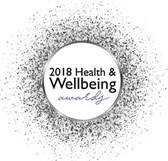|
Life can throw us so much stuff sometimes.
At the moment one of my kids is having a hard time. I wouldn't trade being a teenager again for anything, I've done my time, and he is doing his 100%. He is doing his teenage job of figuring himself out and facing some demons, and as his mum, I need to show up and be there for him as best I can. This is as much my yoga practice as when I step on my mat each morning. It is on me to keep calm because he can't yet. I need to tune in, to him and to me, to really listen to what is going on, so that I can keep regulated in the face of his teenage 'moments'. I need to practice patience, not over think what is happening or take any of it personally. To bounce back quickly, not be judgemental about what is going on and keep showing up moment by moment with my full presence and heart. To hold it all lightly and enjoy the moments even when they seem tough. And keep taking care of myself during the rough rides that are part of growing up. We do all of this in the microcosm of our mat practice, breath by breath, moment by moment, and we bring it with us into each day to help us show up as best we can. My mat based yoga practice is part of my self care. Nurturing myself and restoring equilibrium and balance. It is also essential maintenance for my body and mind, to ensure I'm staying as well as possible during challenging times. Not just taking care of myself, but also investing in preventing future problems emerging, physically, mentally and emotionally. It is challenging but who ever thought parenting was going to be easy? I just need to do what I can to make sure I am up for the challenge. But my yoga is also something much greater than self care and much more than essential maintenance... There are 3 ways you could view your practice: 1) Do you view yoga as 'self-care'? That thing we do when we feel stressed, stiff, immobile, in need of some nurture or emotional rebalancing. It is this, and more. 2) Do you see it as 'essential maintenance'? A bit more fundamental than self care. The oiling of the creaky bits, increasing the fluidity of whole body and mind suppleness. The clearing out of the accumulated grind and freeing the breath. The regular maintenance routine that helps us operate in the way we like to and help prevents things going awry too far. Yoga is this and more. 3) Do you see yoga as a way to connect to something more fundamental than either of these? Yoga can bring us to a place where nothing needs fixing, maintaining, or improving. Where we are able to let go of the need to change anything. Improving tight hamstrings wouldn't make any difference to how whole and connected you feel to yourself and others and how a sense of joy and contentment isn't improved by touching your toes or achieving your most focused practice state. The aches don't matter when the peace you are seeking is found. And it can continue to be found, felt and enjoyed throughout the moments of the day once you know what your looking for and the best route there - even in the face of a meltdown. Yoga does all three of these brilliantly. It is easy to be satisfied with the first one, and the second one, they are great to do and we should do them, regularly. But the third one, a little more subtle, is where the real power and joy of yoga can be found, no matter what the level of challenge life may be throwing our way. Enjoy your yoga.
0 Comments
This last weekend I hosted my annual yoga retreat. We were just an hour from here, deep in the Somerset countryside in a beautiful country estate. The theme of the weekend was peace. To cultivate peace in life, body and mind. Let's pause We are always so busy 'doing' our lives. Working, shopping, fixing, supporting and caring, and then recovering from the demands of it all. At the end of each day, our energy is spent, we end the day flat out, then we sleep it off, and begin all over again the next day. Create space The space created this weekend was much-needed by everyone. The sublime location in the Somerset countryside, the sessions of yoga, the wonderful food, the inspiration and energy of the birdsong and spring bursting out in all directions. The weekly class upgraded to full immersion Cast your mind back to your last yoga class. You reached the end, and felt much better than when you arrived. Then you left and carried on with the rest of your day. When your on retreat, you don't go home and carry on with the day. Instead you are are in a beautiful location, not asked to do anything, offered nurturing practices, fed well, listened to, then you get to relax again, but more deeply in a candlelit evening relaxation / meditation. Then a night of peace, the occassional owl hoot, relaxation and sleep in a comfortable bed. Woken by the abundant morning chorus, pre-breakfast yoga to energise and revitalise. Fed more wonderful food, deepening gentle practices, and a chance to discuss and explore the wider elements of yoga that we often don't find time for. A spacious glimpse This allows us to glimpse the transformative qualities that yoga helps bring to everyday life. We stay immersed in this calm, vital spaciousness all weekend, letting it seep deeply into every aspect of ourselves. The vibrancy of nature, internal and external, is revealed and rediscovered. Through making space, practicing yoga, laughing, listening, chatting, crying, sitting, lying, eating and everything in between with new and old friends. And we bring this spaciousness home with us, and so it ripples on. We retreat from...
Day-to-day demands Usual routines Distractions Noise Work TV and phones Traffic and city-life Stress and tension Fast pace and being constantly busy Doing life We retreat into... Tranquil countryside Sanctuary Abundant birdsong, spacious vistas of the Somerset levels Nature Slowing down and breathing Yoga practices to nurture and cultivate vitality, stability and peace Spacious time Being cared for, cooked for, encouraged, listened to Community of friends Spiritual connection Ourselves, tuning in, listening Quiet Being Peace Feedback from this year's retreat: "Thank you so very much. It was perfect and as I had hoped / needed" "Such a special time" "Really inspiring weekend. Great to reset and rethink yoga." "Loved the pace and balance of practice, breathwork, time for walks. Perfect for noticing and nourishing the whole of me" Stay in touch for info on next year's retreat which I'll start planning soon. What!? You don't have spare time every day? A free 15 minutes where nothing else needs doing so you can step on the mat and do some yoga?
I'm not sure there is such a thing as spare time. We have the time we have, and we have to decide what is going to fill it. My pattern is that my phone, my kids and my dog have moved in to the gaps that might otherwise have been taken up with other things I used to enjoy: reading, fixing stuff, playing guitar, seeing friends, going for walks. So getting my yoga practice in first thing, or booking my class or workshop ahead of time so I definitely show up, keeps it consistent and regular. I've just booked in for my October retreat weekend so no matter what happens, I've got that time preserved for me. It may feel selfish, but everyone around me benefits too. No-one does well running on overwhelm. While yoga is much more than self-care, it starts here. I'm also really looking forward to this weekend which is the retreat I'm hosting over near Radstock. A chance to completely step aside from the demands of life, into a beautiful tranquil location, trees and birds bursting with life, spacious yoga, and countryside walking - and no cooking, washing up or tv. Bliss. Looking forward to hosting everyone who is joining me and holding some much needed space for you. I rely on my yoga practice. It is a mainstay in a somewhat chaotic world with unpredictable teenagers derailing my days. My body, mind and nervous system know that my safe haven of practice will happen regularly. Which means I can operate from a state of more ease because I'm not leaving it up to chance when I get to my mat and give my body and mind what it needs. We don't get more time, but we do get to make better decisions on what we have chosen to do. Rather than mindlessly drifting towards the phone, which is the easiest, most compelling, least demanding course of action, we can choose to use our time more fruitfully. Find any remotely possible windows of opportunity, and choose to use them wisely. They are precious. Go to bed 20 minutes earlier, so that you can get up 20 minutes earlier and fit in your home practice. Check your messages or phone one less time and use that time instead for a 10 minute mini-practice. Done daily, this will give you over an hour each week of yoga, which is well worth making time for. One thing you discover as you age, is that things ache more. There are more sore bits, injuries take longer to heal and niggles can frustrate our efforts to be pain free.
The body simply isn't as resilient as it was, and we need to work harder to maintain stability and mobility. We are all aging, and we can't wait for a pain-free day to do something positive to turn the tide. It takes more effort to hold our ground than it ever has before and waiting will only set us back further. I had a recent minor skin surgery (thankfully nothing to worry about). It didn't stop me practicing. I had to modify my yoga postures and work around any forward bending so that the stitches could work their magic. My sprained ankle a couple of years back when I slipped into a hole in the park didn't derail my practice. My foot went black and blue and was swollen so cross legged was off the cards, but I simply had to avoid things that hurt, and ensure that I showed up to my practice with extra care and attention. A bit like if I have a sore in my mouth, I don't stop cleaning my teeth. I just brush them more carefully, respect the sore bits, but take care of the rest of my precious teeth and gums in the meantime. If your waiting for the day that nothing aches to get to your mat . . . The Pros - there are lots! Working with an injury can be brilliantly insightful. You'll discover an easily enhanced focus as the sheer risk of not paying attention is far greater. It is easy to view injuries as bad. Granted, no-one invites them, we all want to enjoy the freedom that good health affords. But discomfort is such an amazing opportunity for self-enquiry. Instead of fighting against, and getting frustrated by, your ailments and symptoms, treat the sensations of the cold / achey hip / swollen ankle etc., as the body giving you information about what it can and can't do today. Be curious about the patterns in the mind, the way judgement and negative bias creeps in, and the potential for your intentions to be derailed by over-thinking. All patterns worth getting to know. It is tempting to let movement and meditative practices drop off the priority list in the face of discomfort, congestion, fear etc. but it can be such an interesting and valuable time to practice. It affords new insights and rewards that are very different than if you were feeling fine. And the yoga still helps, even when it is more gentle than perhaps you would choose. You always feel better, more grounded, relaxed, energised, you'll recover sooner, and it can even adjust your relationship to the ailment to become more positive. I found Covid completely fascinating. I had new sensations in my body. My smell went completely. And mentally I knew I had 'it' - the dreaded thing that was sweeping across the world. It was in me, right now. If I allowed it, it could feel a bit scarey. But also there was a level of excitement. How interesting?! That thing that everyone is talking about, I get to experience it first hand, before anyone else I know. Was I going to be okay? Who knew. A completely new experience - how curious, a new adventure. I was lucky enough to have it while on holiday and at no point did I feel so ill that I contemplated hospital. There was even something of a relief at getting it. There was no need to avoid getting it any more, at least for a few weeks after I felt bullet proof. A layer of worry that I didn't even realise I had been carrying around had vanished. That was worth discovering - that I didn't even realise I was that worried. I had discovered a lot about what 'worry' in its more subtle guise looks and feels like. Worth knowing. And from there I just had to go with what unfolded next. My yoga practice was a revelation. My postures and breath felt different. Each practice held a sense of fascination at what it was actually like to be in a body with Covid. The physical sensations, plus the stuff in my mind. The temptation of dramatic narrative and fear of what might happen next, drawing me away from what was actually my direct experience of what was happening. The vividness of experiencing my new body, within the familiar ground of my daily practice, helped deepen my practice and level of attentiveness and meditation. All brilliant insights to carry forwards. Ultimately life is often out of our hands. We like to think we are in control, we often try to be which can take so much energy. Illness and injury are times when situations are taken out of your hands in a visceral way. And this has great value and benefit. This doesn't necessarily mean showing up to class with a streaming cold, but show up to something. Show up online and take it gently, take a short video, do your own personal practice. There is always something you can do, and it is always worth the effort. The old adage life is a journey, not a destination, applies at its best here. The journey is possibly the opposite of what you would have chosen, but there is plenty to enjoy anyway, it might just take a shift of mindset. Definitely something worth practicing. Celebrate our teachers
We have some wonderful teachers at YogaSpace including some of the most experienced in Bristol. Marian has been running her Thursday classes since 1998, which is the same year that I started practicing yoga. Something must be going right for us to get the award for BEST YOGA CENTRE IN BRISTOL, 2024. Experience really counts in a yoga teacher. Especially if you find yourself in an older body, or have an old injury that needs extra care and attention. Almost all our teachers are 50+ and have been at this for at least a decade so know what we are doing and can ensure it is ideally tailored to those participating. 'Yoga with Adriene' is great if you are also in your 30s, young and fit etc., otherwise you might find yourself pursuing a practice suitable for someone younger. She says and does a lot of great stuff, but... having an appreciation for bodies and minds that have some wear and tear, a collection of injuries or issues, are flat-out in their busy lives, or are perhaps post-menopausal, really does matter when it comes to teaching a movement-based practice. Alongside our brilliant skill and experience, it is also why we keep our classes pretty small. One studio just up the road from us squeezes in 35 students in each class. 35!! I hope no-one needs an adaptation or any bespoke attention as it simply isn't possible to see what everyone is doing in a group that size. Of course almost all practice is better than none. YouTube videos for folks in their 30s is fun, squeezing into a hot room with lots of others is an exhilarating buzz. Or if you want tried and tested experience for grounded, well-balanced yoga that will leave you feeling great and support you in a tailored way, then you are in good hands with us. With the colder evenings now set in for the winter, perhaps heading out to the studio, or getting on to your mat at home feels harder? Some of you have (or want) a regular home practice, some of you only practice in a group class, and some of you do both. In an ideal world we would do both, but home yoga and group yoga are both great in their own right. Our initial challenge is doing something! The main aim is to regularly and consistently move, breathe well, and become more embodied and subtly aware of yourself and life. Our bodies love to move, and when given time and space to practice, respond in incredible ways. The next challenge is doing what is right for you. What will bring you what you need in the most effective way. Group yoga is very different from home yoga, and both have brilliant benefits, advantages and disadvantages. And they are a wonderful complement to each other - in an ideal world, we would do both. GROUP YOGA More challenging. Typically more challenging, not necessarily physically, taking you into new territory in a guided way to discover aspects of your body, breath and awareness that you might not delve in to by yourself. It usually isn't as frequent as home yoga, so that extra challenge has time to integrate over the days until your next class. Teacher guidance. It offers more guidance from a teacher. Habits that you wouldn't notice on your own can be highlighted and explored. A teacher will be able to provide experience in how to overcome obstacles, issues and offer new insights physically and beyond. The process of finding an optimum practice that works for you and your unique body and situation can be achieved more quickly and avoid more of the pitfalls along the way. Motivating. It can be great to bookmark that time in your calendar, and help keep you motivated and accountable so that your practice actually happens. This requires its own commitment to showing up. Prebook your classes or term so that it is given priority in your life. And the friendly faces each week help keep it fun and enjoyable. HOME YOGA Personal to you. Home practice is typically more frequent, often shorter, more gentle and more personal and intimate with yourself. Once you know what your doing, there are less external reference points to guide you. Its just you with your body, breath and mind. The practice can gradually become more internal, and perhaps more subtle. Shorter time more often. If you are taking an hour long, class-like practice every day, chances are this is more than you need to do, so only do that if you know you are being careful, and have lots of spare time or have built this up over a while. It is incredible what a shorter practice, taken daily, with repetition and a well-focused mind-set can add to your life. Start small. I've been guiding home practice in 1:1 sessions for over 15 years and initially, I would suggest that 10-20 minutes is plenty if your goal is long-term. Spend a month doing a shorter practice, getting to your mat daily and consistently, and then only once the habit is established and solid, then consider adding in a little more, step-by-step, until it feels optimal, enjoyable, and fits in to your life. It doesn't have to 'look' impressive for it to be brilliantly effective. 30-day challenge. If your interested in jump-starting your own home yoga practice, your invited to join my free 30-day challenge to help you on your way. Go to the Free Yoga Resources page and start from there. 6-months from now you'll be so glad you did! Our yoga practice is often forward looking - we practice to gain something. Perhaps we are seeking more flexibility, a less achy back, an unscrambled mind, a stronger and calmer end to our week. The idea of seeking something from yoga is universal, especially when you are getting started. We all take up the practice for a reason, and yoga in its brilliance, is often a good solution. It does all of those things, and much more. However we don't have to always seek something from our practice and their is a curious paradox here. Not seeking or expecting a reward from what we do is a different stance from how we approach most of the rest of our lives. Instead, we can move and breath for the joy of it, for the habit of it, we let go of the expectations and hopes, and simply see what arises. This step-change in our practice can be a revelation. It can provide a gentleness towards ourselves. We might discover how to listen inwards more fully. And perhaps opening towards what is there now, not what we are trying to create or get. And it allows us to discover space and be more receptive to what arises. Instead of pushing or demanding something of a posture, or of our breath or focus, invite a gentler approach. Bring an openness to a movement or to the breath, back away from pushing, struggling or trying too hard. And within that find receptivity. Pushing against anything will meet resistance. Sometimes it is appropriate to address this resistance. But it is also wonderful to let go of the pushing. Allow a pose to unfold for us instead of 'creating' it with effort. Allow the body to be more receptive to a stretch because it feels safer when not being pushed. Allow the nervous system to calm down. There is research demonstrating that if you take a stretch at only 30% of the maximum, so hardly anything really, that it is far more effective at gaining mobility than taking the stretch at 70% or higher. Receptivity and repetition do the job better than pushing, and allow us a spacious and relaxed body and mind along the way. Next time you take to your mat, instead of expecting or pushing, try giving thanks for what you already have, what is already there, and open gently into what arises without expecting anything more. It offers a beautiful pause in life which I would highly recommend. I love getting to the end of a term of classes and inviting people to see if the physical work or breathwork feels different than when they started a few weeks previously. We have been getting into the deeper work that familiarity in your practice allows. Perhaps the half pigeon pose isn't as intense after doing it for a few weeks, not because you aren't doing it as fully, but because the body has changed and is less restricted in the hips than it was before.
Yoga really does work. Brilliant! I had a lovely email from someone from class yesterday and I would love to share it with you (it's anonymous of course, but thanks so much for sending me your story of how yoga is helping you!!). "I walked into the office this morning and my boss took a deep breath to speak. (Clara note: her boss is VERY difficult to work for) Instantly a little voice in my head said “You’ve got this. You did yoga last night!” Isn’t that incredible! I stood tall and answered politely! So yoga is working for me! Looking forward to our next session!" Yoga practice helps our bodies change for the better, and helps our nervous system to become more resilient to stress and strain. We become more open and available to meeting antagonism with friendliness, holding our ground with amity rather than anxiety. Our minds become more open, relaxed, spacious, and we can let go of negative patterns and embrace a more positive way of being in the world. All that from a weekly class. I love it! What yoga has offered me has changed over the years with the demands of health and lifestyle. Yoga supported me with stress relief during my single life of career and partying in my 20s, to being a busy mum with teenage boys and family and work demands, and everything in between. My body has changed, my energy levels have changed, the time I've had available for yoga has changed, but I've never given it up, as it gives back so much more than I give to it. Amongst all this change in my life, my practice has remained consistent. The postures and breathwork don't change that much, a posture or technique here and there to address specific needs. There are things I'll keep doing as long as I am able, because they work so well for me, keeping me as healthy as possible, stable, with a clearer, more grounded perspective on what's important in life. What changes the most is how I do my practice. I might take the postures slower - increasing the physical intensity with an extended breath, making more demands on my body by lingering in the hard bits. Or I might use a mantra to accompany the movements, and ease back physically to enable spaciousness to arise in the face of feeling overwhelmed. Occassionally I'll just do lying poses, some breathwork and savasana if I'm feeling poorly. My framework was set by my teacher, Paul Harvey, and remains pretty stable. I have a set practice that works, and offers a reference point for how I am. It took consistency and an experienced teacher to get me to that point, and my job is to keep showing up on my mat. The rewards of consistent practice are lifelong, and riding the rollercoaster of life becomes a lot more fun along the way. Here's to another year with yoga by my side Luckily the penny dropped right away with me that yoga was something I needed to prioritise. That this is what I needed to do to improve pretty much every aspect of my life. I immediately felt less stressed and tired. Literally by the end of my first 20 minute practice I felt like a weight had lifted from my body, from my mind and from my sense of wellbeing. I knew I needed to keep doing this regularly to top up these effects and I've never looked back. What else do you put in your calendar that helps you feel better, find more space and freedom in body and mind, and helps everyone around you? I practise yoga every morning before I come down and breakfast with the kids for exactly this reason. It enables me to bring more vitality and a better mood to the table, which helps my day, their day, and get us off to a good start. They are teens so they need all the good vibes they can get or it can be a rocky ride. Finding the right practise, the right level of effort and ease, the right intensity and relaxation is hard to find these days. There is a lot of power yoga that is fast and vigorous, heated to intensify the experience, skipping through poses with barely a chance to catch your breath.
But there is also what we offer at YogaSpace ... there is a quietness to what we teach, it is challenging but gentle, understated but highly effective and brilliantly accessible. It can take getting used to but brings all the benefits that yoga has to offer. Add slow breath and focus to any posture and you'll discover a new way to practise. It can take time to get it to feel familiar, to get comfortable and to learn the skills of effective practise, but that is why it is called practise. The penny might not drop right away, it might not feel like the workout you thought you needed, but you'll soon find your way with it. Along with our group classes that we offer, there are some in-depth workshops coming up that will help kick start and develop your practise in a way that only small group guidance can. I'm still enjoying the inspiring afterglow of last Sunday's day of yoga, reflection and intention setting. A lovely group of people gathered for the New Year Retreat Day at the Bishopston studio to take space for themselves and to delve a little more into simple but gorgeous yoga practices and refresh their yoga life skills ready for 2024.
The practices and chats on Sunday reminded us that yoga is as much about moving and breathing, as it is about the skills involved in living a more joyful life. We don't often have time in a group class for explicitly engaging with the philosophical framework of yoga, but it is a real, rich, living philosophy which once explained is hugely practical in every day life. The yoga framework includes aspects such as: ~ being kind and generous to yourself and others ~ ~ reflecting inwardly from time to time ~ ~ noticing how things effect you and adjust the stuff that isn't helpful ~ ~ being present more often, it is where joy can be found ~ ~ keeping things simple, overcomplication rarely helps ~ We do this often on the mat in our yoga class. We are invited to turn our attention inwards to our breath and body sensations, rather than outside of ourselves. To be more gentle with ourselves than we might normally. To pause and observe effects of a pose or technique. To be present and to simplify what we are doing with our attention. These are all aspects that we cultivate on the mat so that they are more available to us in daily life too. Insights are witnessed in our practice that allow us to be easier on ourselves and become wiser in our lives. And the net result will be that we become happier and healthier, nicer to be around, better to ourselves and others, and a whole lot more effective in whatever we are hoping to achieve with our day. (Win, Win, Win!) Beyond the day-retreat being a wonderful, refreshing escape from usual life, it was so valuable to discover what people took from the day. Many participants found the lifestyle framework from yoga, the 'Yamas' & 'Niyamas,' helpful for reflecting on their own situation as we took stock of 2023 and then shifted towards our direction for 2024. This framework is a way to rediscover unnurtured aspects of ourselves and remind us that life isn't all about work, or being a parent or a much-depended on support for others. Rekindling attention to our more whole self, which includes our sense of fun, adventure and creativity, will bring more joy into our life and those around us. "Wonderful,nourishing way to spend a Sunday." Very worthwhile day, would thoroughly recommend to anyone. Feel relaxed and refreshd and looking forward to the year ahead." Enjoyed the reminder of the power of simplicity. A really warm and welcoming experience." The next deep dive into our practice will be the yoga weekend retreat in April where we can take time away to refresh and nurture ourselves.
There is plenty in our lives that we have to do; we have responsibilities and obligations. But we can also make a conscious choice when the opportunity arises to resist being busy and distracted.
What can you do more of now that will feel right when you reflect at the end of your life? When you first get started, there is a period of figuring out how to get to the mat regularly. Learning what sort of class suits you, and understanding the format of the class and what the teacher is talking about.
Then you start to figure out how to get into some basic postural forms, discover what the breath is doing. discover how to focus and pay attention. The teacher provides helpful feedback to help guide you into safe and effective practice. As the practice becomes more familiar perhaps we can then independently start to listen to our own cues and tune in to more subtle aspects. The guidance of the teacher is part of the picture, your own internal guidance perhaps starts to be of more importance. Some practice styles prioritise teacher feedback, others tend to prioritise students tuning in to their own feedback. Our own feedback may be more subtle and easier to miss until we become more sensitive in our practice. A teacher can never know what you are feeling in the same way that you can. At first you might have no idea how your feeling, but that sensitivity gradually develops. Your body might need to start grumbling more before it is listened to by you. The breath might get lost or become agitated or we might become out of breath before we listen to it. Sometimes students ask me for adjustments and may be disappointed when I suggest that their pose is in a good place, and offer cues to help them feel for themselves. Often people like to be told what to do (or perhaps they are used to being told what to do). Your body and breath are great guides, along with pausing to notice or taking more time in your practice to understand the responses being offered. Pausing during our practice, rather than just at the end, to observe moments of stillness and quietness, may seem counter intuitive if it isn't something your used to. Pausing, sometimes after each pose, can help us reduce our tendency to rush and not pay close attention. Some people take to it like ducks to water, moments of space and quiet are why they came to the practice in the first place. Some like to feel heat and intensity of a challenging practice with a strong focus to support and stabilise them. A long savasana at the end, once our energy is spent, may be the closest we get. Understanding your own practice can be your greatest teacher in yoga. Understanding the body and the breath, and ultimately understanding the mind and more subtle aspects beyond can be revelatory. A teacher / guide can be of enormous help and point things out that your not seeing and help you avoid indulging some ideas you may have about your practice. Feedback is a collaboration through relationship with your teacher, your body, your breath and the fruits of your practice. Mostly attendees were in their 70s and 80s and they enthusiastically enjoyed exploring some yoga postures, breathing, relaxing and ultimately found it revitalising with smiles all around by the end of the short, 25 minute practice. (Or was that because lunch was next).
They sought out the handout to support them with a short, daily routine of yoga to help them rekindle this feeling in themselves. Movement, breathing, focus, coordination, the fun social interaction of a group activity - all these aspects are helpful in preventing the development of dementia and keeping active in any way is great for everyone, including elderly folk. Yoga can be gentle enough to include everyone, doesn't need fancy leggings or mats, and certainly doesn't need to feel esoteric or mystical. Let's move, breath, relax into ourselves and enjoy life a little more :-)
There is really only one reply. Why do you want to be able to do the Lotus posture?
There are lots of ideas about yoga, and one is that the pose has some special quality that once you achieve it, will be bestowed upon you. The myth is that sitting in Lotus posture will mean you are finally 'good' at yoga, or can 'do' yoga, or will be able to meditate more effectively. Perhaps the ego will finally be satisfied (!), or your discomfort with sitting quietly will go away. Truth is, many people will never be able to sit in Lotus posture. Or if they manage it, could well damage their knee, hip, ankle etc. or create other undesirable outcomes. The bigger question to explore, is to understand why have they come to yoga and what can yoga offer them. It might not be obvious at first. There may be paths to pursue that then require a change of course. This is life. But starting them down a safe and satisfying route of practice, while exploring why they want a particular posture so much and helping them perhaps see a greater use of their time, is part of being an effective guide. It may be that 6-months to Lotus pose is a wonderful pursuit, if it gets them on the road to daily, safe, practice. This term in my group classes, we are focusing on sitting in some variation of cross-leg pose. Not because at the end of the term everyone will be able to sit cross-leg, that would be a fools promise. But to help those who can and want to, move towards it safely, and those who can't (or can but shouldn't) realise that another pose, or sitting on a chair, may well be far more beneficial and fruitful for their meditation practice. Enjoy the practice. Comparing yourself or aiming for someone else's practice is a reliable way of making you unsatisfied and unhappy. 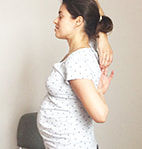 A common question, often when you are getting going with it. What's my response? Well it depends on your aims and needs and what other life commitments you already have. Regular is good, but more is not always better. I practice yoga every morning, before the day gets going. Before the kids are awake and when the house is still relatively quiet. I get up and take to my mat or whatever space is available if I'm not at home. I take asana (yoga postures), pranayama (breathwork) and then sit in meditation. This is my foundation, and it feels essential with teenagers in the house. It's not a chore, I love it and miss it if I don't do it. Is a weekly yoga practice enough A weekly practice provides a regular, intimate contact with yourself, your health and wellbeing. Spending time with a close connection to your body, your breath, your mind, Moving your body in ways that support your physical and mental health, breathing well and allowing space for the mind to quieten. Is daily yoga practice a good idea?I encourage my students to take practice in between classes. I provide short practice handouts based on what we do in class, and offer advice to support them in developing their own home practice. This doesn't work for everyone, but even 10 minutes a day can be a brilliant addition to your day. A daily practice is different to a weekly class. The daily practice is more intimate - you are there connecting with your body, breath and mind more often so the relationship with yourself becomes more refined. Your understanding of your body each day will develop, along with the understanding of your breath and mind and the thought patterns you begin to notice. I have a course that is set up to help you develop a regular home practice if this sounds appealing to you: Home practice course > Is there such a thing as too much yoga practice? I've certainly come across keen yoga practitioners who do a lot of yoga practice, sometimes several hours a day. Anything can be taken to extremes so of course that is true with yoga practice as well. Equally there are those who have a modest daily practice who find it invaluable. How much do you actually need to gain the benefits you seek. And how much is your ego telling you more is better or being competitive with yourself or others? How will I know what suits me?It might not be the quantity of the yoga techniques that is being practiced but perhaps what has been chosen to practice. A yoga teacher is a great resource to help you find a suitable practice. Ensure that the teacher you choose is experienced and isn't just about fitness and getting stronger and more flexible. There is more to yoga and more to life.
Anything is better than nothing, but too much might not be as helpful as you think... 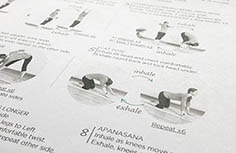 Are you good at yoga? Are you doing yoga wrong? Is there a body position you struggle against? Is there a breath technique which feels hard? Who made up the rules of yoga anyway? Rules are made up by peopleRules are made up by people. They are guidelines that probably helped someone (or many people) to gain more from their yoga practice, and so they keep being repeated and enforced in the hope that they will help you too. They are often from a book and you don't really know if the person who wrote the book would stick to that rule if they knew what happened with you when you tried to follow it. Or the rule might simply be from a bossy person who likes to tell people what to do. I do this to my kids quite often, enforce rules and boundaries, sometimes I'll seem bossy. And this has its place. Sometimes they just need to know where to start, and what to do, and how to do it. It is a good place to begin for them, and they like rules ... at first. But at some point there is a conversation about the rule, when they are ready or when they feel like that rule isn't a great idea, and the rule may well be due for an update as a result of the discussion. Or they may just need to understand what underpins the rule helps it make more sense to them. When to break the rulesRules are there to be helpful. But rules are also there to be broken / updated / changed when they aren't working.
If you come up against a rule in yoga, use it as a springboard for your own enquiry into what it does for you, or what it doesn't do for you. This doesn't give you free reign to do what you like, discipline is a powerful tool in yoga and one that I have high regard for. This is where teachers are really helpful. Someone more experienced at understanding this rule than you, with whom you can discuss it. Explore why the rule would be a helpful one for you to work with (or not). What might the rule offer that your not seeing from your viewpoint. Be prepared for an outcome either way, or if the teacher doesn't know why the rule is there, and isn't able to explore it with you, then find someone more experienced who is. Perhaps the rule is generally a good idea, or perhaps the insight you gain from the conversation and enquiry is perhaps more beneficial than the rule itself. 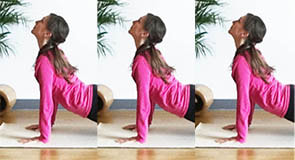 Some approaches to yoga teach the same sequence of postures and techniques that you learn, practice, develop, progress and refine over many years (e.g. Ashtanga Vinyasa). Some yoga teachers change what is taught in every class (e.g. Vinyasa Flow can get very creative). There are benefits and pitfalls to each and of course it doesn't need to be one or the other ... I teach a midline in my group classes, but with a definite pointer towards repetition and familiarity of postures, breathwork and technique. Hopefully leading you towards daily practice, repeating your personal home practice each day without variation unless there is a specific reason to adapt it. Group yoga classesMy group classes follow a term of more or less the same practice - that is several weeks of the same class. There is some development of the poses over time, exploring variations or subtleties within the poses as they become increasingly familiar. Repetition in this way helps you move beyond the excitement of 'what are we going to do today?' to allow you to become more deeply involved in what and indeed how to practice and enable you to refine what you are doing and perhaps discover more subtlety and more spaciousness in the practice. Rather than inviting in exploration of what is new and exciting, removing the novelty to leave space for other aspects to emerge. Pros and consVarying what is taught every couple of months supports you to encounter new postures, techniques and ways of practicing, learn how to do them in ways that suit you, and perhaps even discover that they are valuable to you and perhaps include in your own home practice.
Creative practice can be exhilarating and entertaining. Trying new things, exploring your body and breath, capturing your attention in new ways. This is particularly important for younger people who need the variety to keep them engaged and to keep them coming back to the practice. It can be satisfying in a way that is hugely important when you are embarking on your journey and need external motivation to keep going. I practice almost the same thing every morning. However as with all elements in viniyoga, it is about picking the right tool for the job and teaching what is beneficial and appropriate to the person wanting to practice yoga. What do you think? I'm part of a community of teachers who participate in the Association of Yoga Studies (AYS). A group of a few hundred teachers, mostly in the UK, who meet annually to share teachings, learn from experts in their field, and continually develop our knowledge and understanding of yoga and yoga teaching. We are based in the teachings of TKV Desikachar and his father, Krishnamacharya, Viniyoga. Part of this tradition is chanting. Chanting the Yoga Sutras was a core part of my teacher training. Learning by heart some of this core text which forms the basis of much of what I teach. Even though it is over 2,000 years old, the teachings on the mind are so relevant to modern life. Being able to chant in Sankrit was a surprise part of my training that I didn't realise I was going to learn to do, but here I am, years later still continuing and participating in group chanting. There are practical reasons to learn how to chant... - breath development - learning the ancient teachings of the Vedas and Yoga Sutras by heart - focus and concentration (you literally can't drift your attention and remain true to the Sanskrit sounds without knowing that you have, as you'll make an audible mistake right away and bringing your focus keenly back) - quietening the body, nervous system and mind But something else happens when you chant, especially when your in a group. A resonance takes place in your own body and mind. Especially with the group sound, the coming together of individual voices to make a collective sound which is a wonderful and powerful experience. Anyone who takes part in a choir or orchestra will understand what I'm talking about. It's no coincidence that every culture has singing practices embedded deep within. And Covid has reminded us the value of being together in a room with others. Chanting in Sankrit, continuing the strict chant rules and pronunciation that has remained as unchanged as possible for over 2,000 years is an inspiring experience. It brings us together, connecting us individually, as a collective, and to the shared subtle underpinning of our everyday life. This past weekend I took part in a wonderful Vedic Chanting retreat with Chris Preist. Coming together with a shared joy of yoga practice and study with time for reflection and silence has never felt as needed as after the challenges of Covid. If you've ever wondered about chanting, please do ask me, or come to one of my workshops where we use simple chanting and sound practices. Or simply try humming to yourself and start to enjoy the sound and vibration. Try this...Lie on your back, knees bent.
~ Place your hands over your eyes (not pressing on the eyes themselves) and block out the light. ~ Gaze into the darkness and patterns that appear there. ~ Relax ~ And then take a soft, easy hum each time you exhale. ~ Do this for a few minutes, slowly listening to the sound of each hum. ~ No matter what note or quality of sound, and no matter if you like the sound of your voice or not. Feel the sound if you don't like to listen to it, ~ After 5 minutes, see how you feel. Something will have changed in you. ~ Ponder.... |
More blog articles >Categories
All
Archives
July 2024
|
|
Bristol YogaSpace Ltd
Princes Place, Bishopston Just off Gloucester Road Bristol BS7 8NP |
|



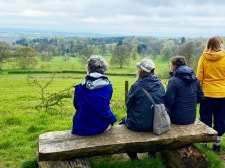

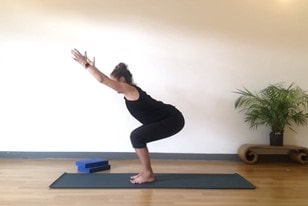
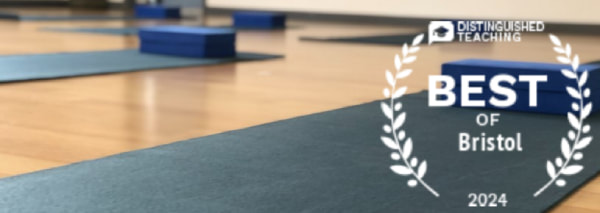
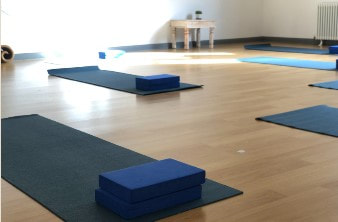
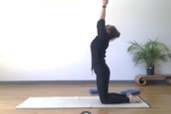
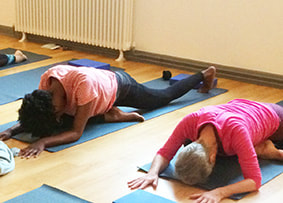

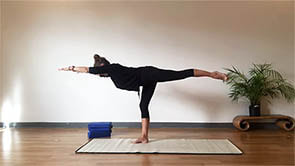

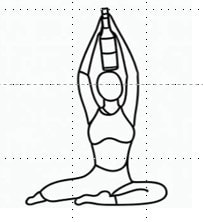
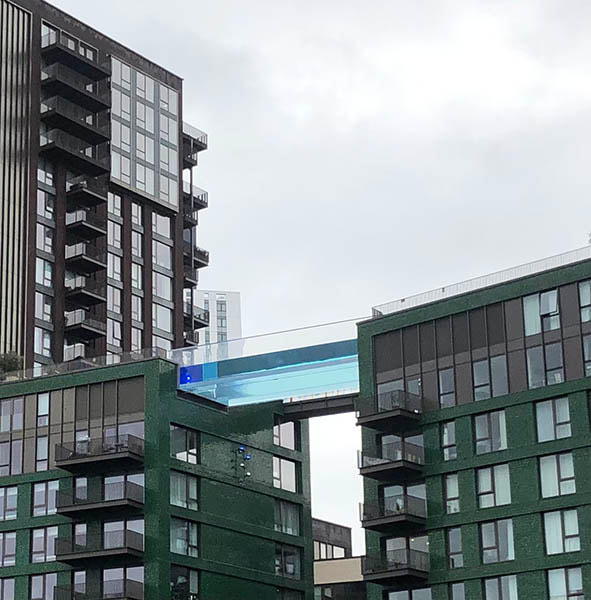
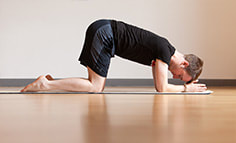
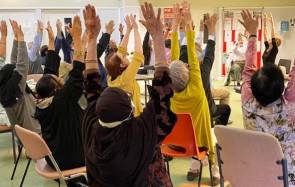
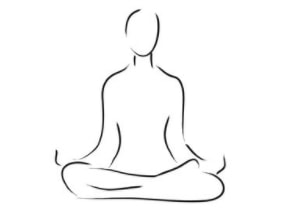


 RSS Feed
RSS Feed

